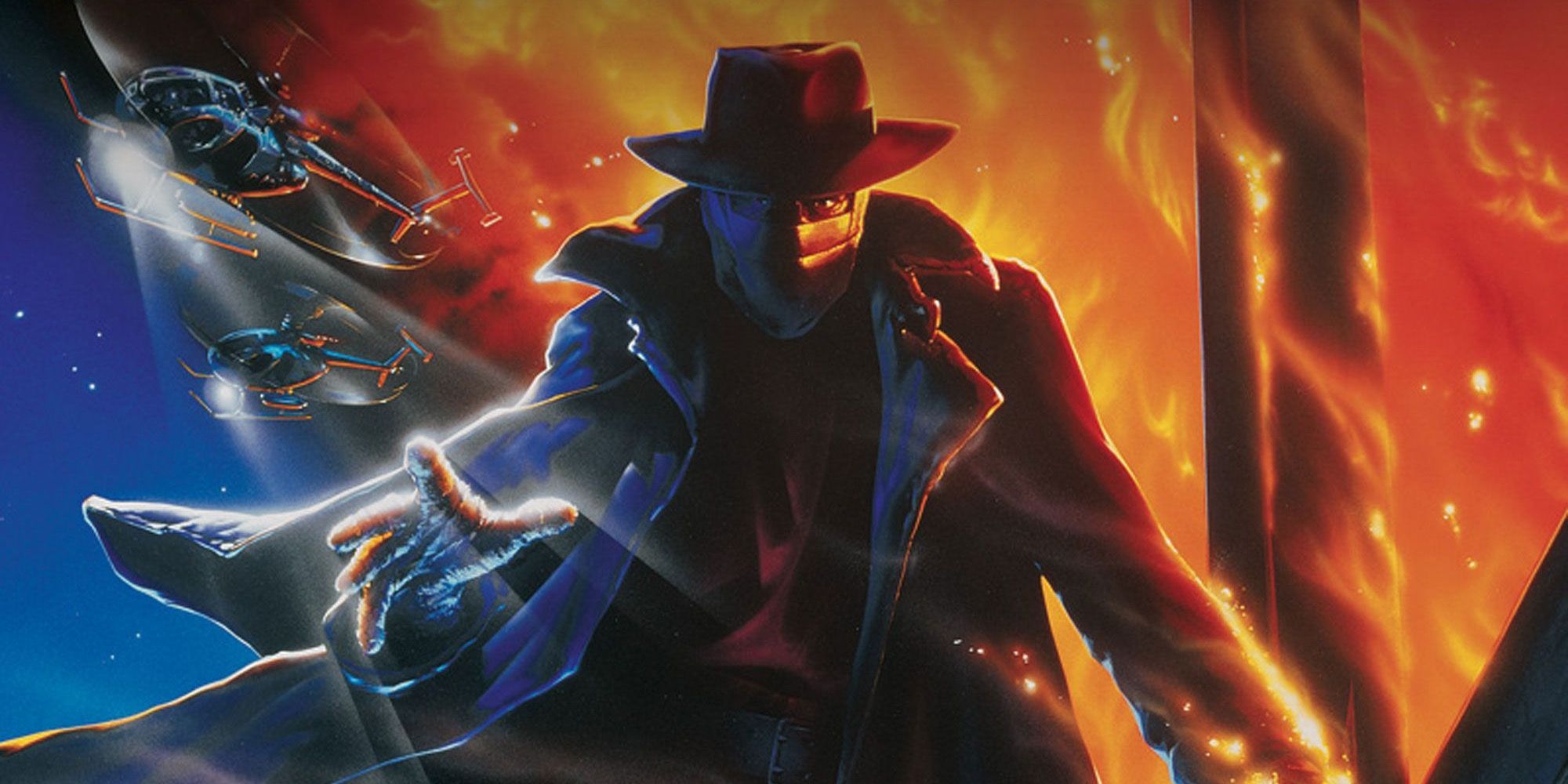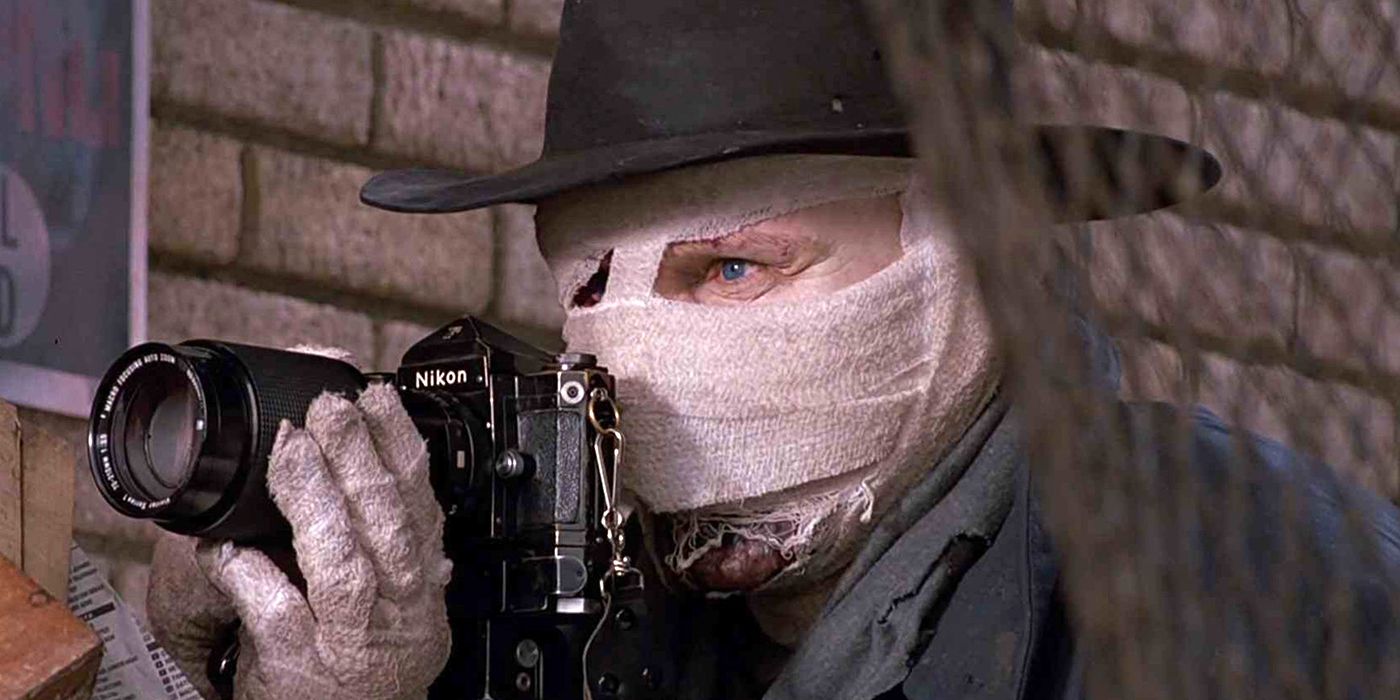Director Sam Raimi recut his first major studio film, Darkman, behind the back of Universal right before it was set to release. The film, released in 1990 and starring then-unknown Liam Neeson and Frances McDormand, was a surprising critical and box office hit. It sits comfortably at 84 percent on Rotten Tomatoes and grossed a worldwide total of $48.8 million. It's largely considered to be Raimi's introduction to superhero filmmaking. The director is best known for his work on the Spider-Man trilogy of the early 2000s (those that starred Tobey Maguire and "revolutionized superhero cinema"), though Darkman, which is now a popular cult hit, was undoubtedly the moment he announce himself as a visionary talent.
Raimi's film - adapted from a short story of his own - follows Dr. Peyton Westlake (Neeson), who is researching/developing a new type of synthetic skin that will help burn victims. Amidst his research, a merciless mobster (the late Larry Drake) hired by a corrupt developer viciously attacks Westlake, leaving him for dead in his lab. An emergency treatment saves Westlake, but not his skin, though he unexpectedly develops super-human powers that come with the side-effects of mental instability and somewhat psychotic behavior. With his newfound strength, and a relative ability to control its use, Westlake sets out to hunt down the men that caused his disfigurement. Wholly original and entirely ambitious, Darkman is likely the film that gave Raimi the ability to expand on his creativity in future projects.
According to THR's 30-year retrospective on Darkman - complete with quotes from cast and crew - Raimi and his editor, Bob Murawski, recut the film right before its release without telling anyone, let alone Universal. Though Raimi elected not to participate in THR's revisitation, Robert Tapert, one of the film's producers, spilled the darkest of secrets. He detailed the following:
I don’t mind saying this now, and Sam will probably be unhappy, but the studio said, “There is nothing we can do to save this picture. Let’s lock it [Smith cut approved].” So we locked the picture on Friday night at 5 p.m. We were incredibly disheartened and dispirited. And Sam’s present editor, a guy by the name of Bob Murawski, said, “There is a much better movie than what we are locking right now.” So, the decision was made that we would re-edit the movie. We spent 48 hours basically recutting the entire movie, restoring things we thought were important. We added nine minutes back in, things we really liked that the preview audiences would recoil from, but that was what it was meant to do. We locked it - and didn’t tell anybody.
Universal came to watch it after the mix, and there was this giant outcry, but there was nothing to be done. The negative had been cut. Critic screenings were 48 hours later. Bob and I advocated very strongly for the deception. Sam, left to his own, probably would not have done that. He is not that kind of guy. But I am.
Additionally, Universal's former president of production, Sean Daniel, recalled that Tom Pollock, Universal Pictures chairman was "seriously f-cking furious." He remembered thinking of the move as "ballsy," and that it was "as big a breach of every conceivable protocol of delivering a movie in postproduction... It was an Ocean’s Eleven maneuver." Arguably, it worked out for the best since Raimi has continued to develop his career as a filmmaker, particularly in the comic book genre.
In 2022, the Raimi-directed Doctor Strange in the Multiverse of Madness will hit theaters, if it sticks to its current release date. It will be the director's fifth superhero film and, thanks to box office inflation and the massive popularity of the Marvel Cinematic Universe, it might be his biggest. And yet it seems relatively clear, when considering the work that went into maneuvering studio manipulation, that Darkman very well may have been his most formative filmmaking experience. Sure, his Spider-Man films introduced Raimi to mainstream audiences for the first time. But to cut an original film behind the back of a major studio in an effort to maintain creative control? That's the real superhero maneuver.
Source: THR


